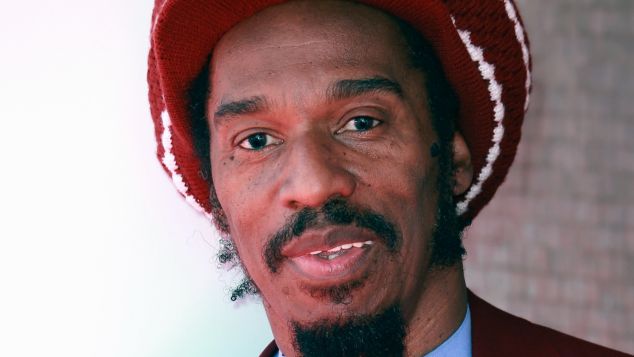
British poet, author and musician Benjamin Zephaniah has been remembered as a voice against homophobia following his death at the age of 65.
The acclaimed dub poet passed away on 7th December after being diagnosed with a brain tumour just eight weeks ago. Zephaniah work often touched on political themes and he had been proclaimed one of the fifty best post-war writers in the United Kingdom.
A post on his Instagram page announced his passing.
“Benjamin’s wife was by his side throughout and was with him when he passed,” the post read. “We shared him with the world and we know many will be shocked and saddened by this news. Benjamin was a true pioneer and innovator, he gave the world so much. Through an amazing career including a huge body of poems, literature, music, television and radio, Benjamin leaves us with a joyful and fantastic legacy.”
Zephaniah was born in April 1958 in Handsworth, Birmingham which he thought of as a “cold suburb of Kingston Jamaica.” He experienced dyslexia and left school at the age of 14.
He moved to London in 1979 and Pen Rhythm his first collection of poetry was published. He began performing at political rallies, youth centres and outside police stations, and was heavily involved in protests against apartheid in South Africa.
His second collection of poetry The Dread Affair was released in 1985 and it featured a number of poems about the British legal system. In 1990 he followed up with Rasta Time in Palestine which contained an account of his travels to the region.
One of his most well known poems is What Stephen Lawrence has taught us, which was published in The Guardian newspaper as part of a campaign to draw attention to the case of black teenager who was murdered in a racially motivated attack while waiting for a bus in southeast London. The case drew attention to racism in the United Kingdom and questioned attitudes within the Metropolitan Police force.
Benjamin Zephaniah also made music. He was the first to record with The Wailers after the death of Bob Marley. He also had an acting career appearing in fourteen episodes of the television show Peaky Blinders where he played Jeremiah ‘Jimmy’ Jesus.
Through out his career he often wrote about masculinity, attitudes to homosexuality in black culture, and called for people to stand up to homophobia. He also encouraged Afro-Caribbean people to be tested for HIV and speak about their diagnoses.
In 2003 Zephaniah turned down being given an OBE from Queen Elizabeth II, noting that so much of his work was is about anti-colonialism.
“I get angry when I hear that word ’empire’; it reminds me of slavery, it reminds of thousands of years of brutality, it reminds me of how my foremothers were raped and my forefathers brutalised”. he said in relation to the honour.
In a 2018 interview with the BBC Benjamin Zephaniah shared the he had been violent towards one of his former partners.
“The way I treated some of my girlfriends was terrible. At one point I was violent. I was never like one of these persons who have a girlfriend, who’d constantly beat them, but I could lose my temper sometimes… There was one girlfriend that I had, and I actually hit her a couple of times, and as I got older I really regretted it. It burned my conscience so badly. It really ate at me, you know. And I’m a meditator. It got in the way of my meditation.” he said.
As news of his passing was announced writers, musicians and political leaders paid tribute to the acclaimed poet and writer.
“What a thoughtful, kind and caring man he was. The world has lost a poet, an intellectual and a cultural revolutionary. I have lost a great friend.” posted singer and composer Joan Armatrading.
Former Labour leader Jeremy Corbyn said he was deeply saddened by the news.
“A devoted friend of the marginalised and dispossessed. A beacon of hope. An inspiration. What a terrible loss to the world — but what a beautiful, powerful and eternal legacy.” Corbyn wrote.
OIP Staff
You can support our work by subscribing to our Patreon
or contributing to our GoFundMe campaign.






